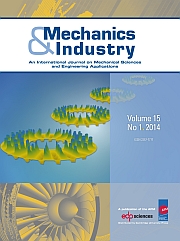Article contents
Microstructure, friction and wear analysis of thermoplasticbased composites with solid lubricant
Published online by Cambridge University Press: 08 February 2013
Abstract
Thermoplastic based composites containing different weight fractions of molybdenumdisulfide (MoS2) solid lubricant were developed by injection molding.Polymethyl methacrylate (PMMA) and polycarbonate (PC) were chosen for the thermoplasticmatrices. In order to characterize the interfacial adhesion between the matrices and thefiller, we observed the fracture morphologies of selected composites. Micrographs of thefractured surfaces showed removal of MoS2 particles by microcraking as well asthe presence of voids in the case of PMMA/MoS2 composites. These observationswere confirmed by complementary images obtained using the X-ray tomography. The additionof an appropriate coupling agent may improve the adhesion between the MoS2particles and the polymer matrix. Tribological behavior of the composites was alsoinvestigated using a ball-on-flat microtribometer with a high chromium steel ballantagonist. It was found that the addition of MoS2 particles didn’t improve thetribological performance of the composite in the case of PMMA matrix unlike the case of PCmatrix where the friction coefficient was considerably reduced.
Information
- Type
- Research Article
- Information
- Copyright
- © AFM, EDP Sciences 2013
References
- 9
- Cited by

